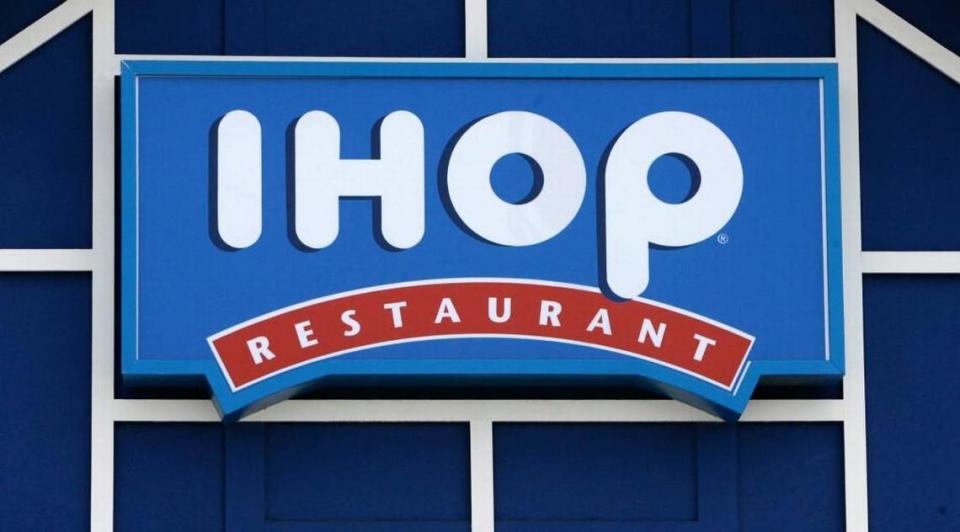IHOP fired NC cook who wanted Sundays off because of his Christian faith, EEOC says
An IHOP franchise in Charlotte is being sued by the U.S. Equal Employment Opportunity Commission for religious discrimination and retaliation.
An employee hired in January 2021 at the store at 134 W. Woodlawn Road had asked and was granted religious accommodation to not work on Sundays, according to the lawsuit filed Tuesday in U.S. District Court for the Western District of North Carolina.
The general manager agreed to not schedule the cook on Sundays because he said he’s a Christian and “holds a sincere religious belief that Sunday is the Sabbath and a Holy Day ... to honor God by attending church services, participating in worship, and taking Communion in accordance with his church’s practices,” according to court documents.
But three months later, a new general manager “expressed hostility” about the request and required the cook to work on two Sundays on April 25 and May 9, 2021, according to the EEOC complaint.
After the second Sunday shift, the cook said he wouldn’t work future Sundays.
When the employee showed up at work for his next shift, the general manager refused to let him work and fired him, according to the EEOC lawsuit.
The manager told other employees “religion should not take precedence over (the employee’s) job” and that the cook “thinks it is more important to go to church than to pay his bills,” the suit said.
Suncakes, a Texas-based company doing business as IHOP, violated the Civil Rights Act of 1964, which provides for religious accommodations in the workplace and protects individuals from religious discrimination and retaliation, according to the lawsuit.
The EEOC is seeking back pay, compensatory and punitive damages for the employee, as well as a court order to prevent future religious discrimination at the IHOP store.
“It is unlawful for an employer to take adverse action against an employee because the employee asserted his rights relating to a religious accommodation,” Melinda Dugas, regional attorney for the EEOC’s Charlotte District, said in a statement.
The Charlotte IHOP declined to comment, referring a Charlotte Observer reporter to the corporate office. Officials with IHOP’s corporate office in California and Sun Holdings did not immediately respond for comment Wednesday.
Suncakes has operates 41 IHOP restaurants in Tennessee, North Carolina, Virginia and South Carolina, according to the company. In 2020, Sun Holdings Inc., led by CEO Guillermo Perales, acquired the franchise.
Sun Holdings is ranked as the second largest franchisee in the U.S. with over 1,130 restaurants in 25 states. Its brands including Arby’s, Burger King, Krispy Kreme and Popeye’s, according to the company website.

EEOC religious discrimination case trends in NC
There were 97 religious discrimination charges filed in 2021 in North Carolina by the EEOC, according to the latest agency data available.
That’s the lowest number of such charges filed in the state over the past decade, with 2016 having the highest number at 210, records show.
North Carolina had the seventh-highest number of religious discrimination charges filed in the U.S. in 2021, behind No. 1 Texas, followed by California, Florida, Pennsylvania, Illinois and New York.
In 2021, the total number of religious discrimination charges filed in the U.S. by the EEOC was 2,111. By comparison, there were 4,151 charges filed in the U.S. in 2011, the largest number since 1997.
Charges refer to an initial complaint at work or in a job interview reported to the EEOC. “It can take a fair amount of time for a charge to advance to a potential lawsuit as our investigators, mediators and other staff complete their due diligence for each charge,” said Victor Chen, a spokesman for the EEOC.
What is religious discrimination and the law?
Religious discrimination involves treating an applicant or employee unfavorably because of their religious beliefs, according to the EEOC.
“The law protects not only people who belong to traditional, organized religions, such as Buddhism, Christianity, Hinduism, Islam and Judaism, but also others who have sincerely held religious, ethical or moral beliefs” the EEOC states on its website.
Here are some religious protections in the workplace, according to the EEOC:
▪ The law forbids religious discrimination, including hiring, firing, pay, job assignments, promotions, layoff, training and benefits.
▪ It is illegal to harass a person by making offensive remarks about a person’s religious beliefs or practices.
▪ The law also requires an employer to make reasonable accommodations for an employee’s religious beliefs or practices, such as flexible scheduling to allow the employee to practice their religion.
Walmart worker in NC got fired for missing work due to chronic illness, EEOC lawsuit says
Lowe’s to pay $700,000 to women in sex harassment discrimination settlement with EEOC
Bojangles sued by EEOC over female worker claims of sexual harassment and retaliation

